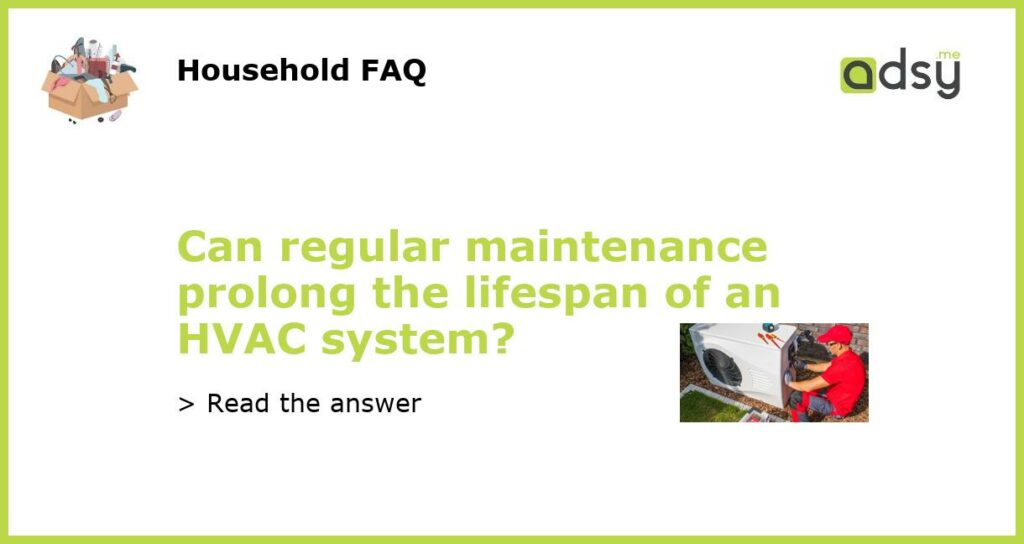Regular maintenance is crucial for prolonging the lifespan of an HVAC system
An HVAC (Heating, Ventilation, and Air Conditioning) system plays a vital role in maintaining a comfortable environment in homes, offices, and other buildings. It is responsible for heating and cooling the air, regulating humidity, and ensuring proper ventilation. Like any other mechanical system, an HVAC system requires regular maintenance to function efficiently and effectively.
Maintenance of an HVAC system involves various tasks aimed at keeping it in optimal condition. These tasks include cleaning or replacing air filters, inspecting and cleaning coils, lubricating moving parts, checking electrical connections, and testing system performance. By addressing these maintenance tasks regularly, homeowners and building managers can benefit in several ways.
Improved system performance and efficiency
Regular maintenance helps to improve the performance and efficiency of an HVAC system. Over time, dust, dirt, and debris can accumulate in the HVAC system, causing it to work harder to maintain the desired temperature. This extra strain not only reduces the system’s performance but also leads to increased energy consumption. By cleaning or replacing air filters and inspecting coils, technicians can remove this build-up and improve the system’s efficiency.
Prevention of breakdowns and costly repairs
Regular maintenance can help prevent unexpected breakdowns and costly repairs. During maintenance visits, technicians can identify and address potential issues before they become major problems. For example, they can detect and fix minor leaks, loose electrical connections, or worn-out parts. By proactively addressing these issues, technicians can prevent more significant malfunctions and extend the lifespan of the HVAC system, ultimately saving homeowners and building managers from expensive repairs.
Increased energy savings
An HVAC system that operates efficiently consumes less energy, resulting in increased energy savings. Regular maintenance allows technicians to optimize the system’s performance by ensuring all components are clean, well-lubricated, and functioning properly. By eliminating any energy-wasting inefficiencies, the HVAC system can heat or cool the space more effectively while requiring less energy to do so. This can lead to significant cost savings on energy bills over the lifespan of the system.
Improved indoor air quality
Regular maintenance of an HVAC system also improves indoor air quality. Over time, dust, pollen, and other allergens can accumulate in the system and be circulated throughout the building. This can lead to respiratory issues, allergies, and other health problems, especially for people with existing respiratory conditions. By cleaning or replacing air filters and regularly inspecting the system, technicians can remove these pollutants and ensure the circulation of clean and fresh air, promoting a healthier indoor environment.
Extended lifespan of the HVAC system
Perhaps the most significant benefit of regular maintenance is the extended lifespan of the HVAC system. By addressing minor issues, cleaning components, and ensuring proper lubrication, technicians can help maximize the lifespan of the system. Regular maintenance helps prevent premature wear and tear, allowing the HVAC system to operate efficiently year after year. This ultimately saves homeowners and building managers from the cost and hassle of premature system replacement.
In conclusion, regular maintenance is crucial for prolonging the lifespan of an HVAC system. It improves system performance and efficiency, prevents breakdowns and costly repairs, increases energy savings, improves indoor air quality, and extends the lifespan of the system. Homeowners and building managers should schedule regular maintenance visits with qualified technicians to ensure their HVAC systems operate optimally and last for many years to come.

